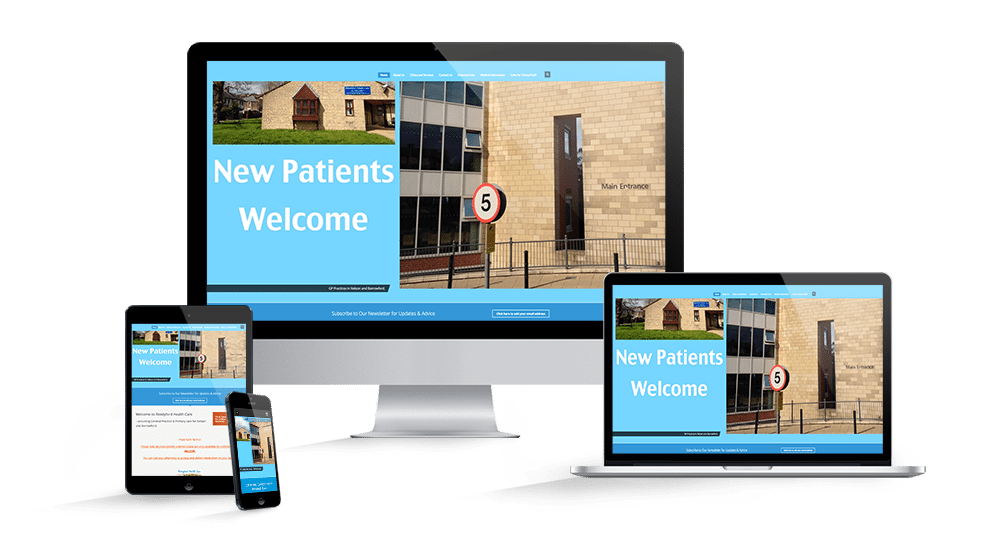WHY WORDPRESS?
At Digital Nomads we design websites exclusively using WordPress and we train our clients and others on how to use this popular publishing platform.
WordPress is an award winning Content Management System (CMS) powering millions of websites around the world. Thanks to its intuitive interface, extensive customisation possibilities and huge library of themes, plugins and widgets, WordPress is powerful, flexible and easy to use.
Read through the following frequently asked questions for more details or get in touch to discuss further.
1. WordPress Is Just for Personal Sites and Small Businesses, Right?
WordPress is used by some of the most widely recognised brands in the world such as CNN, CBS New York, Harvard Business Review, The Metro, New York Times, Mercedes-Benz and Vogue, to name just a few.
Think of it this way: If WordPress is good enough for government sites in the U.K. and U.S. as well as the U.S. military, it’s probably going to be robust enough for your needs, too.
As of August 2015, WordPress powers nearly one in four sites on the Web – and of all sites that use a CMS, WordPress is the choice of more than 80%.
2. Isn’t WordPress a Blogging Tool?
The WordPress we and other designers and developers use (the open-source software package, found at WordPress.org) differs to WordPress.com. The former is a fully-fledged software package while the latter is a service that hosts personal sites and blogs in much the same way as Blogger, Tumblr and other such managed offerings.
WordPress did begin as a personal publishing system back in 2001, but by 2008 or so it had evolved into a complete, feature rich content management system (CMS).
It’s installed on our own servers and you will own everything that’s created and as developers and designers we have full, unlimited creative freedom.
Furthermore, WordPress is built using widely used, fully tested programming languages including PHP and SQL, and can accomplish just about any task asked of a website. It’s eminently extensible with a vast and growing library of plugins – around 40,000 in the WordPress repository alone! Many plugins are free, which means we can add the functions you want to your site faster and at a lower cost than if it were all hand-coded from scratch.
3. What About WordPress and SEO?
WordPress is a Search Engine Optimisation powerhouse, coded to be SEO-friendly “right out of the box.” It supports a wide variety of plugins that help developers fine-tune every aspect of SEO.
Google’s latest algorithm puts fresh, original content in the spotlight – and at the top of search result pages. WordPress makes adding content easy for you and your staff, if you’d like to do it on your own.
At Digital Nomads we use an industry leading SEO plugin to take care of on page SEO and to submit sitemaps to the search engines. On completion of a website project we also use our webmaster tools to submit your site to Google, a manual process that ensures the search engine’s robots crawl and index your site so that you appear in search results quickly.
If required, we can configure Google Analytics to provide visitor metrics and insights and we have a utility to display these statistics directly within your WordPress website dashboard.
4. I’ve Heard That WordPress is “Mobile Responsive.” Should I Care About That?
You should!
A “responsive site” means that it’s built to perform well across all devices used to access the Web. Think you need a site that looks good only on desktop computers? Think again. More people now access the Web on mobile devices than on desktops.
Responsive sites are better for SEO. Google’s latest ranking methodology favours sites that perform well on mobile devices. You reach more people on more devices, and score higher in Google searches, thus adding reach and credibility to your brand.
WordPress helps with all this by supporting mobile friendly, responsive design.
5. WordPress Isn’t Secure!
This is not true at all.
The company behind WordPress, Automattic, employs a security team consisting of 25+ experts whose only job is to make sure the WordPress core is safe from attacks such as injections, viruses, etc. They even have a Security Czar, Nikolay Bachiyski, who really knows his stuff.
WordPress sites are the target of online attack in exactly the same way as other online sites. Since WordPress is so popular, it is inevitable that there will be examples where sites have been compromised. At Digital Nomads we take security seriously and routinely install and configure an industry leading utility and make in excess of 20 changes to the WordPress configuration to enhance security and further protect your site from vulnerabilities.
No site can be guaranteed 100% secure, making it important to have automatic and tried and tested back-up routines in place. The Digital Nomads Support & Maintenance Plan includes routine back-ups and off site storage as well as remote management and monitoring of your site for availability (up time) and software updates. It is really important to keep your site updated as new releases often incorporate security fixes.
6. I heard WordPress is Free. What’s the Catch?
There isn’t one. Really.
WordPress (and its updates) are open-source, which means we are free to use the core software any way we like. And unlike sites hosted on WordPress.com, we have complete creative and functional freedom.
A worldwide team of developers is constantly improving and rigorously testing WordPress. Some are employees of Automattic (the company behind WordPress), while others do it simply to contribute to the very active, supportive WordPress community. Updates are released regularly at no charge whatsoever.
The WordPress software package is licensed under the GNU General Public License(GPL), meaning that anyone can use, copy and distribute the software itself. (Don’t worry: You have full copyright to the styling and content you add.)
7. So If It’s Maintained by Volunteers and Employees, How Good Can It Really Be?
Very.
The WordPress community comprises top-notch coders, testers and other contributors. Unlike software that’s marketed by a single company and developed and maintained by a single team, WordPress has thousands of talented, dedicated people behind it. Updates, fixes and improvements come at a steady pace.
WordPress meets all guidelines of the World Wide Web Consortium, an international community that aims to develop across-the-Web standards for coding.
WordPress also follows best practices as laid out by Google, Bing and Yahoo.
It works in all modern browsers. Firefox, Chrome, Safari, Opera and other browsers (particularly Internet Explorer) have their individual quirks, which websites coded “by hand” must address. That means more time (and therefore more money) is required to cover the reworking and testing needed to make sure your website displays properly no matter what browser a visitor uses. On the other hand, browser compatibility is baked right into WordPress. Sure, if we make extensive changes and customisations, we’ll need to make sure those changes work across all browsers too.
8. You ‘Specialise’ in WordPress Development – So It Will Cost Me More?
Quite the opposite in fact.
WordPress gives us all the basics, so we don’t have to create them from scratch each time, and it’s ready to be customised to your liking.
Once your site is live, if you’re the least bit computer-savvy you will easily be able to add news posts, without paying developer’s time. We assist with this by providing training, if required, along with access to a detailed user manual and a series of instructional videos, embedded directly into your WordPress website dashboard.
By using WordPress and having an open approach to customer access, our clients have guaranteed control over their site and content. You can choose to maintain your own site, pay us to do so or deploy the services of another WordPress developer at any time.
We strongly believe your website is yours and you should have control of it – a sentiment not shared by all web designers and a value that sets Digital Nomads apart from others.
9. Real Developers Hand-Code
All developers – regardless of their approaches to designing and developing your site – must be proficient in, at a minimum, HTML and CSS. Most also know some JavaScript (and its related libraries, such as JQuery). WordPress developers, however, need to know the intricacies of PHP and have at least a decent familiarity with SQL, and they must know the architecture and coding specific to WordPress to boot.
Long story short, the skillsets of WordPress and traditional developers complement and overlap each other, and WordPress developers are no less professional than any others. The difference? The latter don’t start every project with a blank screen. Instead, they begin with a tested, proven, widely used and well-coded framework that’s already done a lot of the heavy lifting.
At Digital Nomads we have trained a number of ‘traditional’ web developers on WordPress too.
10. More Information?
Here are a few external links you may find useful: –





